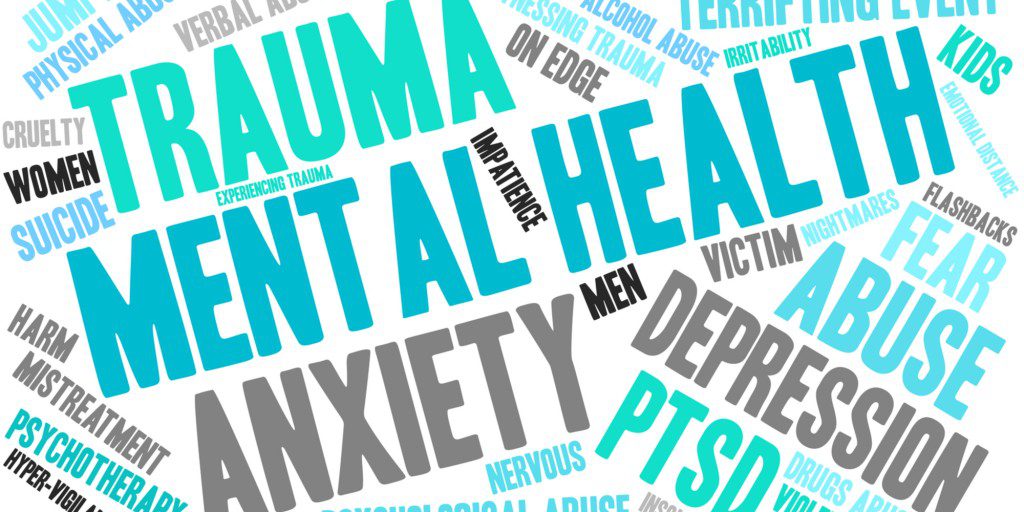Despite the fact that treatment options for people with mental illnesses continue to become more effective and accessible throughout the United States, veterans still face many barriers to mental health treatment. Unfortunately, veterans struggle with more barriers to care than other people who need treatment for substance abuse and co-occurring disorders. But why is this the case? And what can we do to solve this issue?
At Heroes’ Mile, we offer experience-based care that is made for veterans and by veterans. Below, we will show you how to push past mental barriers and recover from mental health challenges.
Veteran Mental Health Statistics

The National Alliance on Mental Illness reports that Veterans in the United States are at a much higher risk for developing mental health issues. Trauma, combat exposure, service injuries, and the strain of keeping yourself and others safe are all things that can greatly contribute to this fact.
Some common mental health issues for veterans include:
Ready to start your journey to recovery?
- Post-traumatic stress disorder (PTSD)
- Depression
- Anxiety
- Suicidal ideation and attempts
With these mental health struggles also comes an increased risk for alcohol or drug addiction. The Substance Abuse and Mental Health Services Administration (SAMHSA) has found that one in 15 veterans struggle with a substance use disorder. For many veterans, turning to drugs or alcohol is the only way they can “cope” with the symptoms of mental health conditions. However, addiction worsens mental health issues in the long run.
Even though veteran mental health statistics show that veterans are in great need for mental health and substance use treatment, too many service members come against barriers that stop them from getting the help they need. This is why, when veterans are able to find substance abuse treatment programs, the treatment needs to address all of their symptoms and challenges to ensure long-lasting recovery.
Barriers to Mental Health Treatment
Veterans face significant barriers to mental health treatment—from a lack of access to care to the stigma surrounding mental health, veterans have several barriers to overcome before they can successfully start the journey toward recovery.
Mental Barriers
One of the first barriers to treatment includes making the decision to seek help. If you are a veteran who struggles with addiction and your mental health, you understand that healing from these struggles requires time, dedication, and professional guidance.
Knowing how to break mental barriers can be a challenge on its own. It might be helpful to read the veteran mental health statistics above to understand that you are not alone in this fight. With the right support from loved ones, mental health professionals, and other recovering veterans, you might find that it is easier to go through the process of treatment.
Another suggestion on how to push past mental barriers to mental health is to learn more about the consequences of untreated addiction and mental health concerns. The symptoms of substance use and mental illness range in severity but, without the proper intervention techniques, results in suicide rates for veterans being much higher than non-service members throughout the country.
If you aren’t sure how to break mental barriers in seeking out treatment, remind yourself that you are not in this alone and that recovery is possible—in fact, it could save your life.
Life Responsibilities and Cost of Care
Even after you make the decision to find treatment, you might find that there are other barriers that stand in your way. The reality is that it is challenging to put your daily responsibilities on pause to go to intensive treatment. What about work and home responsibilities? And is rehab even affordable?
This is why having veteran-based care is so important: It is made to help you transition into a healthier, happier, and more manageable lifestyle. In veteran substance abuse programs, you have the option to stay in a safe, sober environment during the course of your recovery to avoid environmental triggers.
Also, at rehab centers like Heroes’ Mile, we work with your insurance providers to make sure that you can focus solely on the process of recovery. Moreover, we encourage family therapy in order for you to return home with the utmost support and skills needed to maintain your recovery.
Dual Diagnosis Treatment Centers 🔗

Lastly, research shows that one of the most challenging barriers to mental health care for veterans is that there are simply not enough programs that are equipped to treat co-occurring disorders. As we know, having both a substance use disorder and mental health condition is common for veterans. Therefore, getting treatment for both is essential in helping veterans find recovery that actually lasts.
In a study published by RAND, we learn that many rehab facilities for mental health conditions require veterans to be sober or have already completed a detoxification program by the time they enter treatment. Yet, in these programs, veterans are unable to break the harmful habit of turning to alcohol and/or drugs to cope with mental health conditions. As a result, even if veterans go through mental health treatment, they are left less likely to maintain recovery because they have not addressed the risk of addiction.
The National Institute on Drug Abuse reports that having access to substance use disorder and mental health treatment is essential in helping veterans to recover and reintegrate into society. This is why veteran rehab facilities like Heroes’ Mile offer many treatment options, including therapies for co-occurring disorders.
How Heroes’ Mile Breaks Barriers to Mental Health Treatment
For the most effective treatment, the mental health professionals at Heroes’ Mile believe in a combination of the following approaches:
- Medically supervised detox in our center
- Working a 12-step program
- Mental health therapy for PTSD, depression, bipolar disorder, anxiety, and more.
At Heroes’ Mile, there is nothing standing in the way of your recovery. Break that first barrier by calling us at 888-838-6692 or filling out our confidential contact form today.
This article covers some of the most common barriers to mental health treatment for veterans, including:
- Mental barriers
- Life responsibilities
- Finding dual diagnosis treatment
Pushing past all of these barriers to care by contacting Heroes’ Mile is the only way to find effective, long-lasting treatment.
Some of the most common mental health issues in the United States include anxiety disorders, depression, and post-traumatic stress disorder. As we know, these issues all affect veterans as well. In fact, the prevalence of PTSD and other mental health issues is higher in veterans than the rest of the population. This shows that the need for better care for veterans is undeniably necessary.
Did you know that one in five people in the United States have a mental illness? Mental illnesses are conditions that can affect the way you think, act, and feel. Often, they lead to perceptions or behaviors that may seem irrational to someone without a mental illness. People with mental illnesses have a wide range of symptoms depending on their condition, but managing mental health issues is possible with the right treatment.

